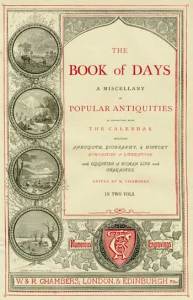
I had hoped to do a re-release party today for The Lily Brand, but alas, I’m still proofreading the dratted book. (Grrrrr!) So let me tell you about the gardens instead.
When I was writing The Lily Brand, I was apparently utterly fascinated with the history of garden planning and garden architecture — or perhaps I was simply inspired by a book on the history of European gardens, which I had received as a Christmas present from one of my great-aunts back in 1997. Leafing through this book now, I certainly recognize several of the photographs as part of the setting of The Lily Brand.

Take the gorgeous statue of Pan on the front cover, for example: in my novel he resides in the overgrown, neglected garden that belongs to the French château of my heroine’s evil (uber-evil!) stepmother. We encounter Pan in the second chapter, when Lillian is wandering around the garden, dragging the bound and gagged hero behind her (poor man — I was in a bit of a bad mood when I wrote that novel…)
Lillian did not hesitate to pick her way through the overgrown garden. She walked carefully, of course, mindful of the thorny branches which lay waiting to trap the folds of her coat and dress.
At this time of the year, the leaves had already started to fall and reveal the branches gray and bare. In many ways, the garden was as ghostly as the mansion itself. But, oh, how many times she had wished that the plants would reach out and envelop the house, bury it under a green blanket!
La belle au bois dormant.
Lillian’s lips turned up in a humorless smile. There would be no prince coming to release her from the evil spell.
In her dreams, the plants would grow and cover the walls of the mansion, would press against the glass of the windows, would seek out the tiniest cracks in the walls. And, once inside, they would grow and grow and twine themselves around Camille. Around and around until there would be no trace left—
Lillian gave herself a mental shake and looked over her shoulder at the man trudging behind her. His chest rose and fell with laborious breaths. What could she say to ease his troubles? For him, there would be no deliverance. And so, she remained silent.
To their left, a lichen-covered Pan peeked out of the bushes, lounging on a bit of rock, flute raised to his lips as if he were about to compete with the absent birds. Just visible under the dark green tendrils was one of the broad, powerful shoulders, a hint of muscles bouncing in his arm. His very presence seemed to mock the man in shackles, for the faun had achieved what the prisoner had not: escape from Camille’s web.
In other news, The Bride Prize, the first novella in my Victorian series is now free on Apple, Kobo, Barnes & Noble, and Amazon (at least it’s free for Amazon customers from the US). So if you’d like to join the reporters of Allan’s Miscellany on their first adventure and accompany them to Scotland to watch a tournament, grab a copy (and bring an umbrella!!!). 🙂
Or if you’d just like to watch me squee (and make other funny noises) over books, you can do that, too. For this is what happened earlier this evening:






